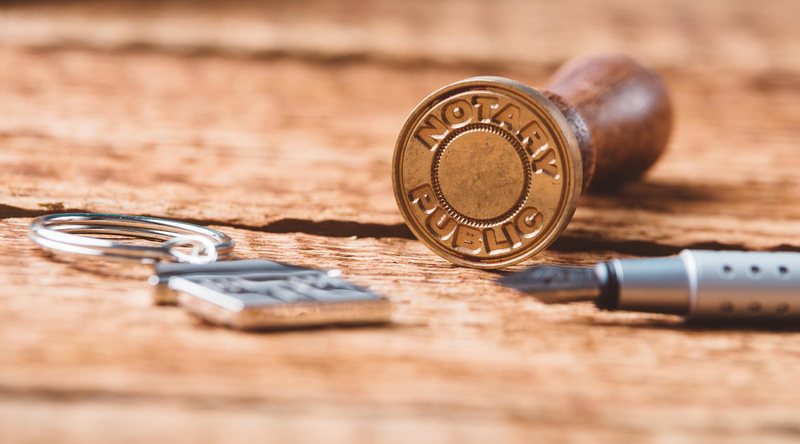A Justice of the Peace (JP) can be used for things like: identity confirmation in migration law cases, certifying true copies of original documents, witnessing affidavits and statutory declarations.
The second type of professional is used for more significant forms of legal verification. This is a Notary Public, also known as a Public Notary. In this article, we’re going to answer the question, what is a Notary Public thoroughly.

What is a Notary Public?
To answer the question, what is a Notary Public, there are two major things to consider:
1) A Notary must be a lawyer with at least 5 years of legal practice
2) A Notary can verify documents for international use
And, while all of the rights and responsibilities of Justice of the Peace are also conferred on a Notary, the reverse is not true.
Let’s look a bit deeper into answering the question, “What is a Notary Public?” A Notary is a position that has several requirements that must be met before the honour can be bestowed. These requirements include;
- Notaries are appointed by the Supreme Court pursuant to the Public Notaries Act (9177)
- Being a lawyer
- Having completed 5 years of legal practice
- Complete the prescribed Notarial Practice Course
- Apply through the Legal Profession Admission Board
So, family lawyers or immigration lawyers for example, can become Notaries, but only after satisfying the above requirements.
A Notary has significantly more responsibilities than a Justice of the Peace as they are granted their own seals or stamps for use in Australian, international and courts in foreign countries.
Notary services relating to acts of verification include:
- Verifying a person’s identity by witnessing a signature or fingerprints
- Authenticating documents which are domestic and also for international purposes
- Taking a witness’s statement for official use
- Completing certificates of law in overseas courts
- Certifying the correctness of a document allowing it to be taken as an original in international courts of law
Notarising documents going overseas
For documents going overseas, a Notary Public must know which process will be necessary for the documents to be fully validated. The process can require between one to three steps.
The steps include:
- Notarising the document before it is sent overseas
- Authenticating the document with the Department of Foreign Affairs and Trade
- Sending the document overseas to the relevant legal agency for approval and verification
The types of documents a Public Notary is accustomed to verifying and certifying include many that are entered into by people on a relatively regular basis, including: trusts, estates, loan documents, contracts (including both land conveyance and business contracts), powers of attorney, licenses and deeds.
Legal verification at this level is a necessary and protective move when entering into any of these documents, thereby providing the maximum amount of legal protection for all involved parties.
This type of verification gives the document complete authenticity. By using a Notary Public in the verification of any of these documents, the parties ensure that everyone signing the document or partaking in the contract, loan or license, is of sound mind and well informed of the effects of signing the document.
How a Notary Public is different to a JP
So, what is a Notary Public in relation to a JP? The most notable difference is that a Notary can actually give legal advice; a JP cannot. A Notary can officiate over and administer oaths, affirmations and offer legal advice and services. A Justice of the Peace can’t do any of these tasks.
The types of services that a Notary Public can perform include:
- Taking declarations and legal affirmations including affidavits
- Acknowledging deeds and other conveyance of land and property
- Processing notes of bills and exchange
- Providing notice to foreign drafts
Using a Notary for significant domestic transactions and for all overseas legal issues is imperative. One of the most common uses of the services of a Notary, is for Estate concerns, including Wills and Trusts, and Power of Attorney. Our Wills and Estates lawyers come across their work regularly.
These documents deal with sensitive legal issues that are strongly dependent upon the understanding and mental capacity of the signatories – if you’re an executor of a will, take note. Hence, validation of identity, signature, and the mental clarity and ability to enter into such agreements, is paramount in the legal validity of these documents.
If you find yourself in need of a Power of Attorney lawyer or any other legal expert, please contact the law offices of Owen Hodge Lawyers. At Owen Hodge, we are always happy to assist clients in understanding the full ramifications of any and all of your legal needs. We specialise in a range of law matters, and have a blog that offers in-depth and comprehensive articles. Check out our latest blog post on what is an easement.
We hope we’ve gone some way to answering your question, “What is a Notary Public?” But please feel free to call us to schedule a consultation at 1800 770 780 if you have further queries.
